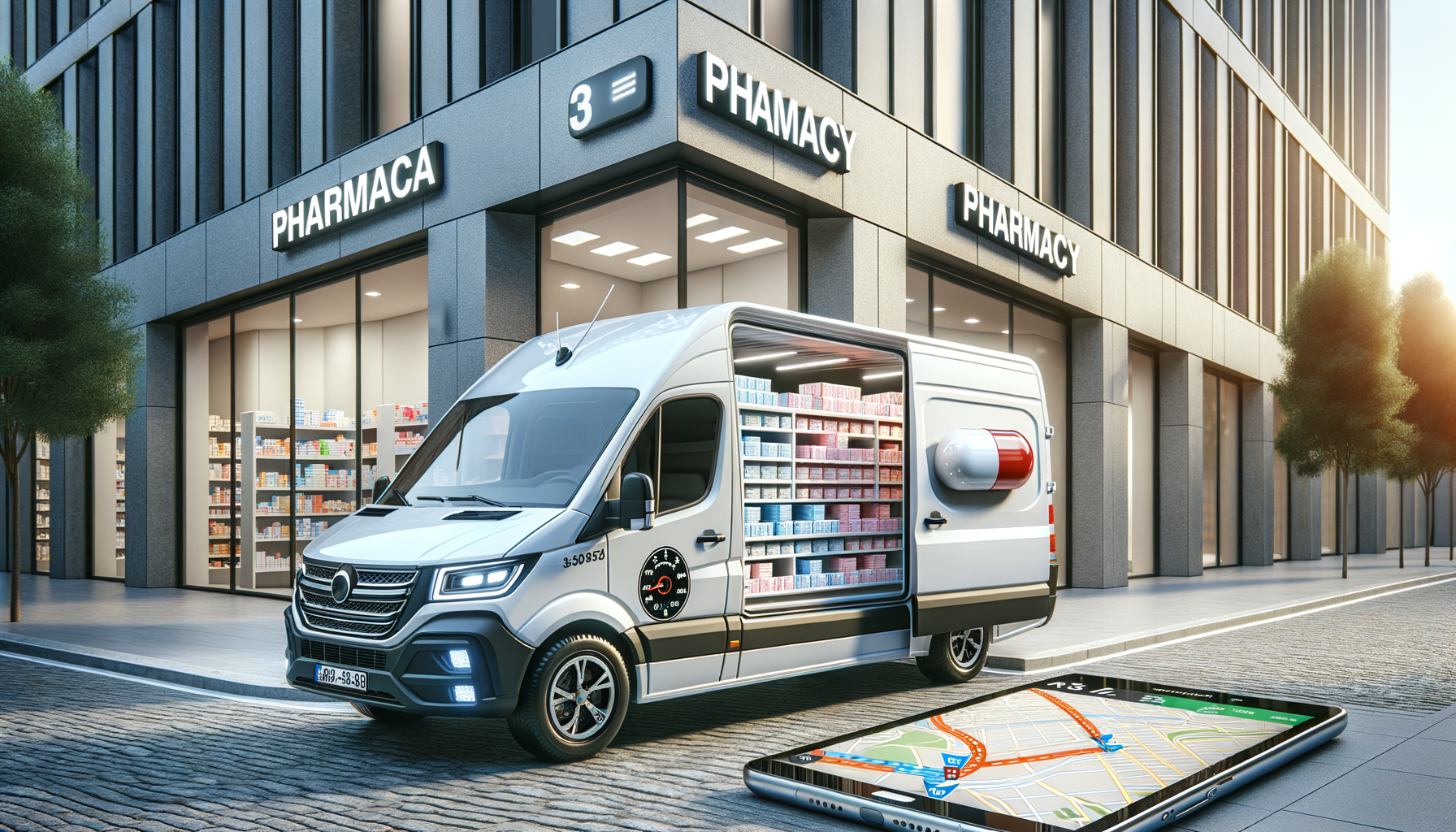
How to Become a Medicine Delivery Driver
Understanding the Role of Medicine Delivery Drivers
Medicine delivery drivers play a crucial part in the healthcare system by ensuring that patients receive their medications promptly and safely. These drivers serve as a vital link between pharmacies and patients, particularly benefiting those who may have mobility issues or live in remote areas. Their role is not just about transportation; it’s about ensuring the continuity of care and supporting patients in managing their health conditions effectively.
The responsibilities of a medicine delivery driver go beyond simply delivering packages. They must handle medications with care, ensuring that they are transported under the right conditions to maintain their efficacy. This may involve understanding specific storage requirements, such as refrigeration for certain types of medications. Additionally, drivers often serve as a point of contact for patients, answering questions or providing reassurance about the delivery process.
In this role, attention to detail and a strong sense of responsibility are paramount. Drivers must adhere to strict protocols to ensure the safety and privacy of patients. This includes verifying patient information, managing delivery schedules efficiently, and maintaining accurate records of deliveries. Their work supports the broader healthcare system by reducing the burden on pharmacies and allowing healthcare professionals to focus on patient care.
Requirements and Skills Needed
To become a successful medicine delivery driver, certain requirements and skills are essential. Firstly, a valid driver’s license and a clean driving record are mandatory. Many employers also require drivers to have a high school diploma or equivalent, although this may vary depending on the specific employer or region.
Beyond the basic requirements, there are several skills that can enhance a driver’s effectiveness in this role:
- Attention to Detail: Ensuring the correct medication is delivered to the right patient is critical.
- Time Management: Efficiently planning routes and managing time to meet delivery schedules.
- Communication Skills: Interacting with patients and pharmacy staff to confirm deliveries and address any concerns.
- Problem-Solving Abilities: Handling unexpected challenges, such as traffic delays or delivery discrepancies.
Training is often provided on the job, focusing on safe handling of medications, customer service, and adherence to health and safety regulations. Some employers may also offer additional training in first aid or emergency response to further equip drivers for the role.
Challenges Faced by Medicine Delivery Drivers
While the role of a medicine delivery driver is rewarding, it also comes with its own set of challenges. One of the primary challenges is navigating traffic and ensuring timely deliveries, especially in urban areas where congestion is common. This requires not only patience but also strategic planning to optimize delivery routes.
Weather conditions can also pose significant challenges. Drivers must be prepared to operate in various weather scenarios, from heavy rain to snow, which can impact driving safety and delivery times. Ensuring the safe transport of medications in such conditions is crucial to maintaining their efficacy and patient safety.
Another challenge is dealing with the emotional aspect of the job. Medicine delivery drivers often interact with patients who are unwell or experiencing stress due to their medical conditions. Empathy and effective communication are essential in these situations to provide support and reassurance to patients.
Finally, drivers must be vigilant about maintaining patient confidentiality and adhering to regulations such as the Health Insurance Portability and Accountability Act (HIPAA) in the United States. This involves ensuring that patient information is protected and only shared with authorized individuals.
Technological Innovations in Medicine Delivery
The field of medicine delivery is evolving rapidly with the integration of technology, enhancing the efficiency and reliability of services. One of the significant innovations is the use of GPS technology, which allows drivers to optimize their routes and provide real-time updates on delivery status to both pharmacies and patients.
Mobile apps have also revolutionized the industry by offering platforms for patients to track their deliveries, schedule drop-offs, and communicate directly with delivery drivers. This not only improves the customer experience but also enhances the efficiency of the delivery process by reducing missed deliveries and rescheduling.
In addition, some companies are exploring the use of drones for medicine delivery, particularly in remote or hard-to-reach areas. While still in the early stages, drone technology has the potential to significantly reduce delivery times and expand access to medications for patients in underserved regions.
These technological advancements not only improve the operational aspects of medicine delivery but also contribute to better patient outcomes by ensuring timely access to necessary medications. As technology continues to evolve, the role of medicine delivery drivers is likely to become even more integral to the healthcare system.
Opportunities and Future Outlook
The demand for medicine delivery drivers is expected to grow as the healthcare industry continues to expand and adapt to the needs of an aging population. With more individuals requiring regular medication for chronic conditions, the need for reliable delivery services is more critical than ever.
There are numerous opportunities for career advancement within this field. Drivers can progress to roles such as delivery coordinators or logistics managers, overseeing the operations of delivery services and managing teams of drivers. Additionally, with the increasing integration of technology, there are opportunities to specialize in areas such as route optimization or customer service management.
The future outlook for medicine delivery drivers is promising, with the potential for increased job stability and opportunities for professional growth. As healthcare systems continue to prioritize patient-centric care, the role of delivery drivers will remain an essential component in ensuring patients receive the medications they need, when they need them.
In conclusion, becoming a medicine delivery driver offers a rewarding career path with the potential to make a meaningful impact on patients’ lives. By embracing technological advancements and honing essential skills, drivers can contribute significantly to the healthcare system and support the well-being of individuals in their communities.


